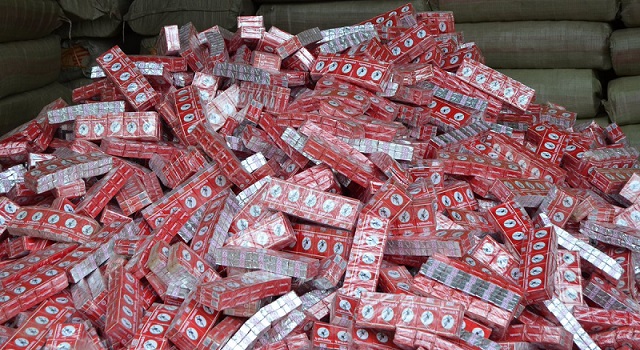
Government failed to realise that the cost of prevention is much lower than that of inaction
COMMENT | ANDREW MAFUNDO | It is well known that the trade in counterfeit goods is a problem however few realize just how serious the problem is.
According to Uganda National Bureau Standards(UNBS), 54 per cent of products on the market are either fake or counterfeits and lots of these, sadly, are locally made.
Tens of thousands of brands have been impacted not only through theft of sales and dilution of hard-fought reputations but also through consumer confusion.
Counterfeits cut across sectors and pause serious health and safety risks. The most common ones are food and beverages, toiletries, watches, perfumes, medicines, cosmetics and lightening creams, toys, iron sheets, electrical products, mattresses, weighing scales, paints, diapers, sanitary towels, steel bars, cigarettes, medical instruments, vehicle parts, vet drugs, phones, motor oil, condoms, agro-inputs among others.
This trend inhibits Uganda’s economic growth since potential investors defer from doing business in a nation where they believe that their products will be widely forged. The people are generally unable to distinguish between authentic, falsified and counterfeit products and anyone can buy a fake version of everyday goods.
The problem is exacerbated by porous borders, corruption and weak laws and poorly funded enforcement organs. In 2017, 232 metric tonnes of counterfeit goods worth sh1.7b were seized by UNBS and 48 Metric tons of substandard goods worth about 950 million were destroyed between July and December 2017.
In spite of this, the Anti-Counterfeiting Goods Bill that was introduced in 2015 with the aim of combating the importation and sale of counterfeit products on the Ugandan do¬mes¬tic market was early this year with¬drawn from Parliament by Cabinet, stating that there are other laws that can ad¬dress the gap.
By doing so, government failed to realise that the cost of prevention is much lower than that of inaction, and that as cabinet, it has a responsibility of fighting counterfeits especially now when there is a substantial increase in domestically produced fakes and the new trend of selling counterfeits on social media platforms .
The scope of counterfeiting is so big and worse in the case of counterfeit medicines. The patients are unaware that they are taking a substandard medicine and their conditions can worsen and, in critical cases, be fatal.
According to World Health Organisation, up to one-third of anti-malarials are fake. This can partly explain why Uganda has the world’s highest malaria incidence of 478 cases per 1,000 populations per year.
Not long ago, the media was awash with stories about use of formalin -an embalming agent that was being used to keep meat and fish free from flies and ostensibly fresh for days. The same preservative is known to be a cancer –causing agent and often used to preserve bodies in mortuaries.
Unfortunately, the individuals profiting from these criminal actions take public safety as secondary to their profit motivation, well knowing that we have weak laws and that can hardly bring them to justice.
Globally, Counterfeiting results in huge losses in tax revenue .Recent research by ICF International, found that across the East African Community (EAC), $500million was lost annually in revenues from unpaid taxes by counterfeit goods and in the case of Uganda, we lose more than Shs 1 trillion in annual revenue.
Therefore, because trade in counterfeit goods thrives more in an informal environment than in a restricted and regulated setting, the government needs to think twice before it implements the transfer of some of its sensitive agencies back to their line ministries; namely Uganda Registration Services Bureau (URSB) as it might heavily impact on the economy and safety of its people. It is essential that we intensify Intellectual property enforcement and push to have successfully litigations against those who have infringed on patents or trademarks.
We salute the role played by UNBS and recent efforts by The Anti-Counterfeit Network (ACN) in partnership with Private Sector Foundation Uganda to address the counterfeit problem. However, for sustained effort, we need a joint ambitious cross-functional roadmap well designed to take the fight against counterfeits very seriously and with good cause.
Our weak regulatory standards, systems and tracking mechanisms and moral decadence create loop holes in which counterfeiters can thrive.
We, therefore, need an urgent and substantial investment in the intelligence and investigations as well as unrelenting commitment by not only government and its agencies but also industries, manufacturers, religious organisations, citizens and other stakeholders to tackle the problem of counterfeits.
The government in consultation with its legislative, judicial and executive authorities should reintroduce the 2015 Anti-Counterfeiting Goods Bill so that they jointly make relevant and punitive laws, tougher penalties, border controls and above all, a coordinated and cohesive strategy backed by financial support to offer protection of the health and safety of its citizens.
The media through their Corporate Social Responsibility departments ought to be engaged to create broad-based awareness among citizens and empower them to identify counterfeit foods as well as report and fight corruption among the enforcers.
We must act now, and swiftly, if we are to avert a deeper crisis.
****
Andrew Mafundo is Executive Director of Citizens’ Concern Africa
Andrew.mafundo@gmail.com
 The Independent Uganda: You get the Truth we Pay the Price
The Independent Uganda: You get the Truth we Pay the Price



